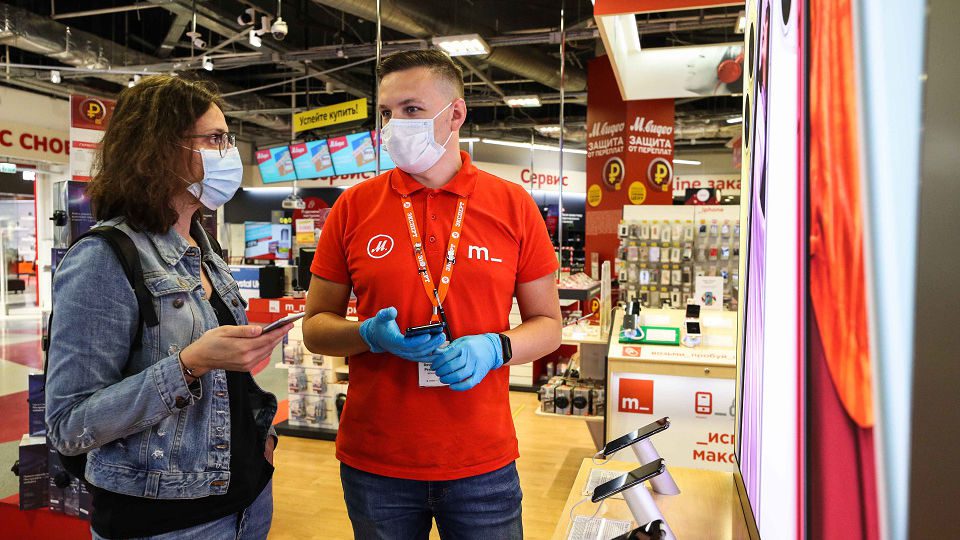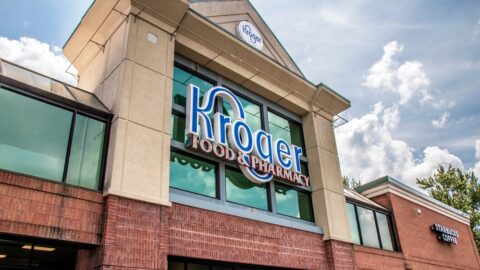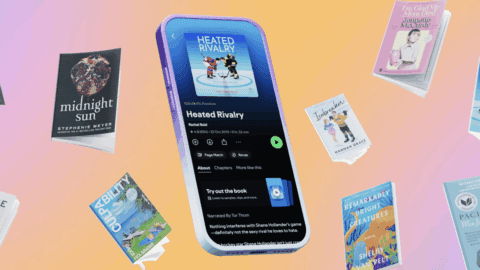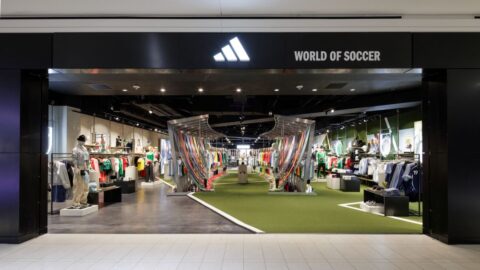While it’s hardly noteworthy that a retailer increased online sales during some of the worst months of COVID, M.Video-Eldorado Group, a 1,039-store electronics and appliance retailer serving more than 250 regions across Russia, did much more than simply funnel products through its suddenly active ecommerce channel. The M.Video ONE RETAIL strategy, designed to connect the online and offline customer experience through a single platform, met the pandemic’s challenges on multiple fronts with strategies including:
- The launch of the Real Time Dealing (RTD) mobile app, which allows associates to check customers in at the store in order to deliver personalized experiences and bespoke recommendations, resulting in RTD-driven basket sizes 2X higher than the in-store average;
- Providing more than 50,000 customer video consultations with store associates since April 2019, with these sessions yielding a 20% conversion rate;
- Teaming up with the X5 Retail Group to launch online pickup capabilities, enabling customers in and around Moscow to collect their online purchases from more than 2,000 locations including parcel lockers and Pyaterochka grocery stores; and
- Partnering with the Ozon Group marketplace to expand its reach to new customers.
The ONE RETAIL strategy helped M.Video increase total online sales by 141.2% year-on-year through September 2020, boosting ecommerce’s share of its total sales from 33% in 2019 to 59% during this period. Q3 2020 net sales for all channels climbed 25.3% year-on-year. And while the retailer actually increased its net store count by 49 locations, online sales have remained high despite the opening of additional brick-and-mortar locations.
“As part of the ONE RETAIL approach, we combine a variety of consumer journeys into one and put our smartphone app at the center of the entire shopping process,” explained Ekaterina Sokolova, CFO of M.Video Eldorado Group in an interview with Retail TouchPoints. “We refocused marketing, operating and retail operations to enable mobile- and web-centric customer journeys, to ensure seamless experiences while improving logistics and fulfillment, including express delivery using taxi drivers.
“In addition to the personalized experience and rewards for loyalty, the customer benefits from an endless shelf, dynamic pricing, a pre-selected purchase history and a seamless transaction,” Sokolova added. “The events of 2020 served as a de facto testing ground for ONE RETAIL, and not only was it successful, but the model provided a framework that enabled us to quickly and seamlessly adjust operations to meet all post-pandemic consumer expectations, from convenient mobile services and contactless payment to express delivery.”
Machine Learning-Powered Analytics Now Central to Demand Forecasting
Sokolova recognizes that ongoing data collection and powerful analytics are vital for any retailer, but particularly for one in the process of a digital transformation. Machine learning algorithms have become the retailer’s main tool for determining demand: “Each week, the demand forecasting solution captures data from 30,000 positions in more than 1,000 retail stores, taking into account geographical location, traffic and seasonality,” she said.
The RTD app does double duty as a personalization tool and a data collector, enabling M.Video to “recognize, track and understand every customer and tailor their experience with assortment and bonuses,” said Sokolova. “Additionally, each time they visit, we process and analyze new data to further improve their experience.”
Partnerships Multiply Sales Channels and Touch Points
Even though its entire store fleet is currently open, the pandemic made M.Video’s executives realize the importance of establishing multiple ways to reach both existing and new customers. The retailer’s partnership with Ozon allowed it to “expand its reach and offer products to new audiences with different consumption styles from our regular customers, and to new cities,” said Sokolova.
M.Video’s partnership with X5 Retail Group allowed the retailer to establish more than 2,000 pickup locations around the country’s capital. “We launched the service in April 2020, after our website’s traffic had doubled and app installations had risen by 2.5X over the previous month,” said Sokolova. “In response to that spike in demand as a result of COVID-19, the partnership ensured customers could obtain the electronics they need while protecting their and their loved ones’ health by further limiting social contact and minimizing trips around the city. We also partnered with Russian Post to increase access to small towns around the country where our stores are not located.”
The retailer also has been adding new reasons for shoppers to visit its brick-and-mortar stores. An electronic waste recycling program that M.Video launched in summer 2019 is now available in 450 stores, with plans to add another 200 locations in 2021. “These sites accept any electronic device, in any condition, purchased from any brand, and every single device is logged into a specially created IT system,” said Sokolova. “In November 2020, we calculated that since the project began, over 900 tons (or 99,000 consumer devices) had been collected, along with 20 tons of batteries (or 1,000,000 pieces).”













